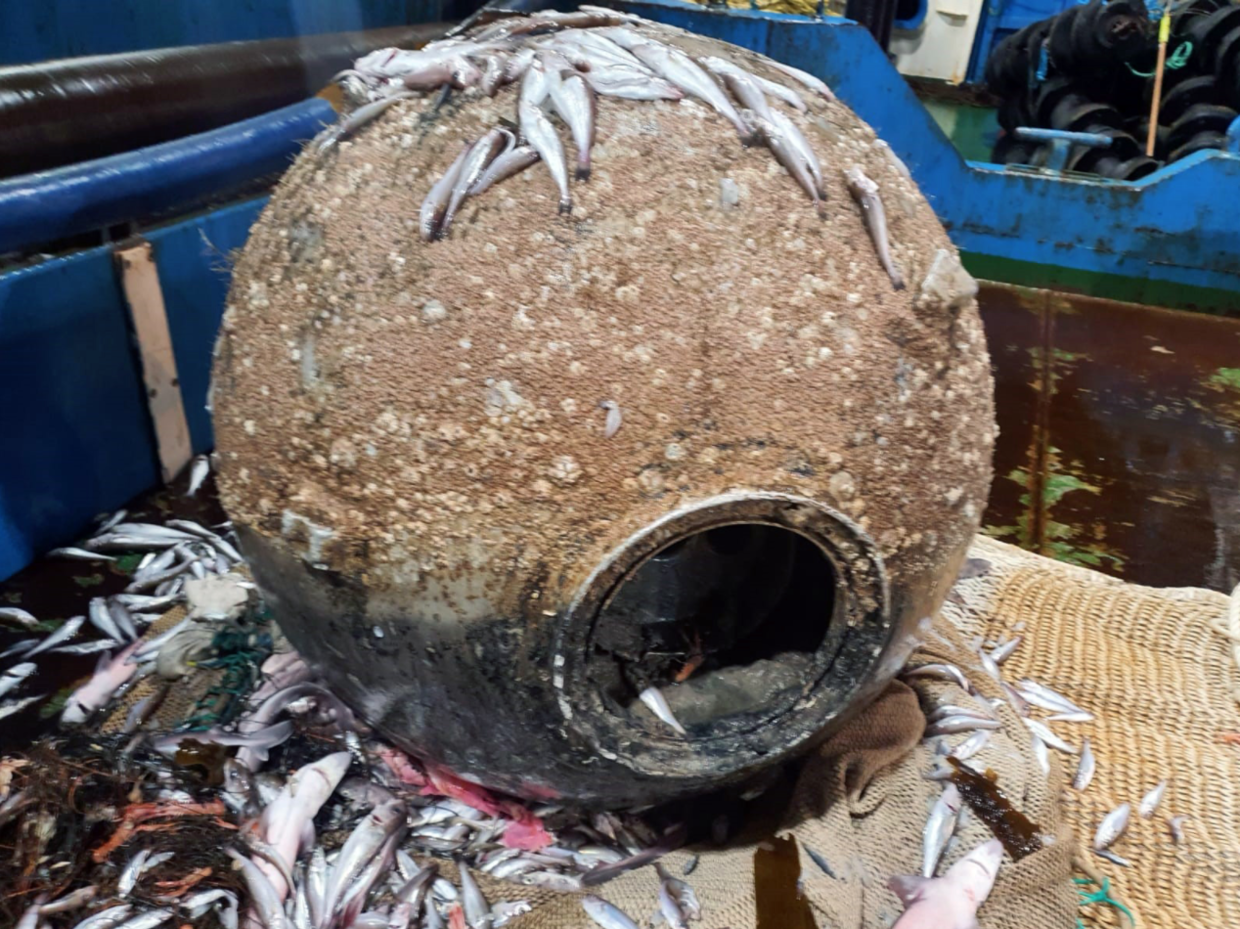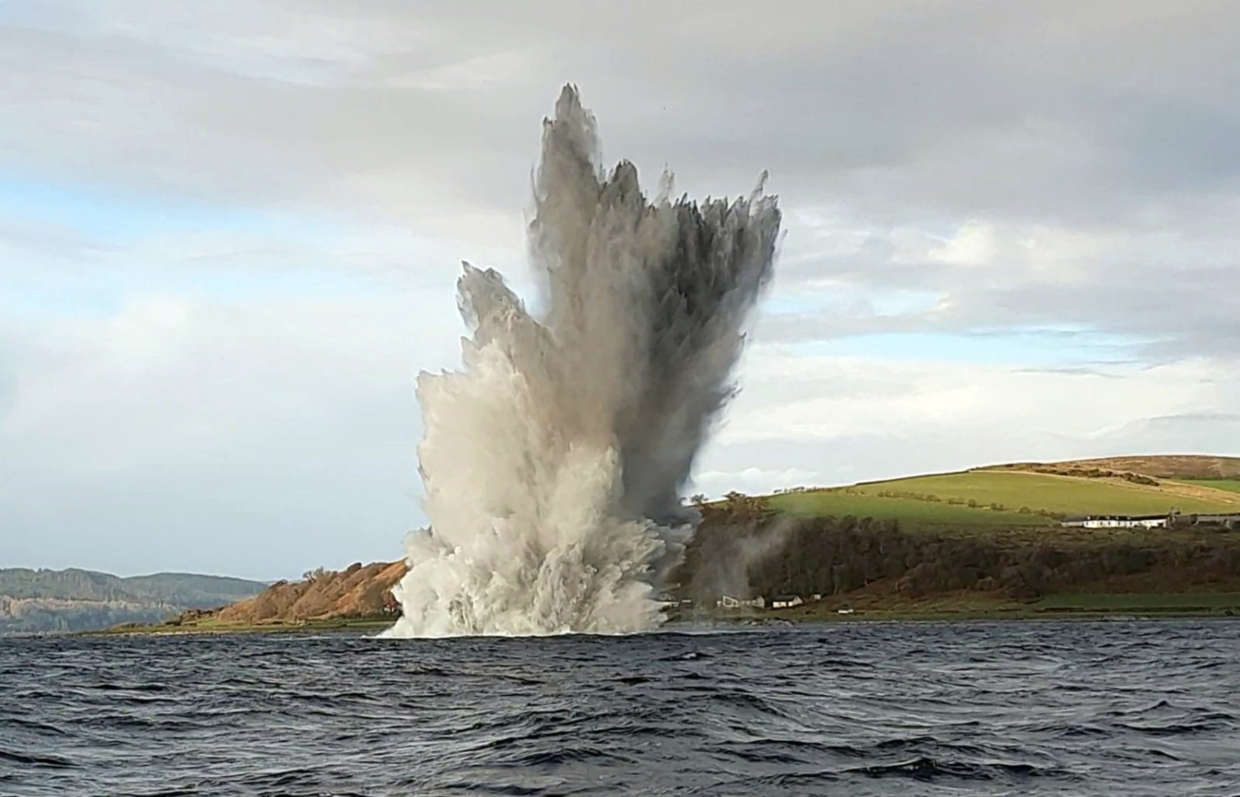WATCH: Royal Navy blows WWII-era mine to smithereens in Scotland
Royal Navy bomb disposal teams rushed into action offshore western Scotland after the crew of a fishing trawler reported a rather unexpected, and unwelcome, ‘catch’ in the form of a Nazi-era sea mine.
The mine was apparently laid by a German submarine off the island of Ailsa Craig during World War II, and remained a potentially deadly threat to this day, as the Royal Navy’s bomb disposal experts soon found out.

The seven crew on board the fishing trawler were evacuated by local coastguard teams and the vessel was taken to Ettrick Bay on the Isle of Bute where it was examined by divers.
“Considering it had been in the water for around 80 years, the mine’s condition was remarkable,” said Lieutenant Commander Mark Shaw, the commanding officer of Northern Diving Group.
The mine, packed with some 350kg of explosives, was found to be in pristine condition, with the only option to safely dispose of it being a controlled detonation at sea.
The Navy divers lowered the mine onto the seabed offshore Ettrick beach before triggering the device and sending a vast torrent of mud and water high into the air, all captured on video.
§Boom! 💥 Bomb disposal exports from @HMNBClyde dealt with a German wartime mine by blowing it into a million pieces.Still containing 350kg explosive, the device was hauled in by a trawler off Ailsa Craig and blown up by Northern Diving Group off Bute.https://t.co/fe5iGaNZSjpic.twitter.com/xdq4z9J2OR
— Royal Navy (@RoyalNavy) December 2, 2020
“Items of this size are relatively uncommon, however, the group are approaching 100 call-outs this year supporting civil authorities with all types of Explosive Ordnance Disposal, ranging from mines and torpedoes to hand grenades and improvised devices,” Shaw said.
The lieutenant commander added that on average, Royal Navy divers are called upon once a day somewhere in the UK to carry out Explosive Ordnance Disposal (EOD) assistance operations.

Subscribe to RT newsletter to get stories the mainstream media won’t tell you.













